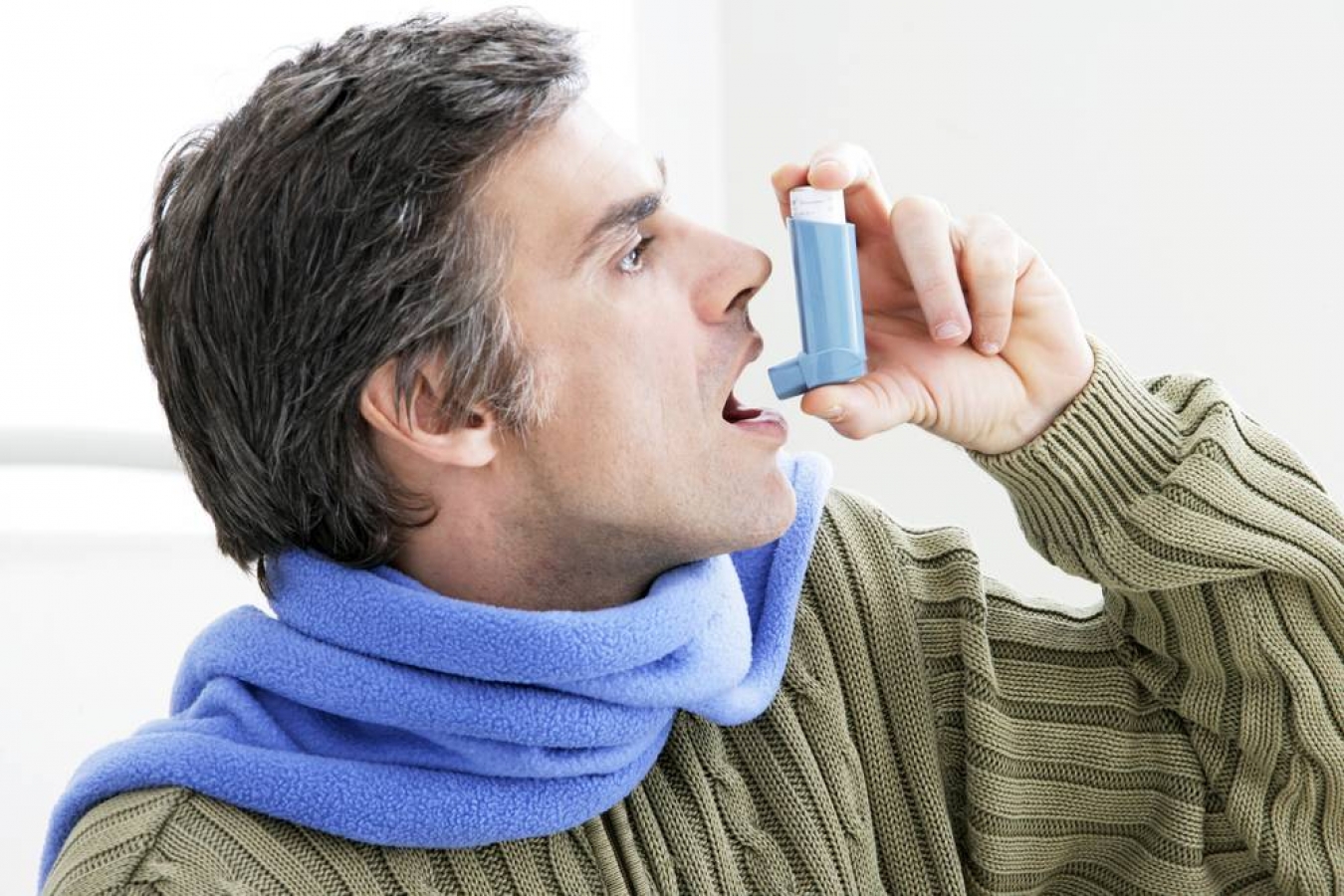


 9:18:52
9:18:52  2018-12-10
2018-12-10  1368
1368

Chronic obstructive pulmonary disease (COPD) is a chronic lung disease that makes breathing progressively more difficult. The disease affects about 11 million people in the United States, and it is the third leading cause of death in the country, according to the American Lung Association.
COPD is considered the intersection of three related conditions: chronic bronchitis, chronic asthma and emphysema, Dr. Neal Chaisson, who practices pulmonary medicine at the Cleveland Clinic, told Live Science.
Symptoms
COPD makes it harder to breathe by reducing the flow of air through the lungs. Reduced airflow may be caused by inflammation (airways may thicken and lose elastic quality), destroyed lung tissue and blockages of mucus, according to the American Lung Association.
Symptoms of COPD are often more pronounced over time and don't appear until the patient is around 40 years old. Often, people don't recognize the symptoms of COPD until later stages of the disease.
According to the Mayo Clinic, symptoms include:
Chest tightness
Shortness of breath
Blueness of the lips or fingernail beds
Wheezing
The need to clear the throat of mucus first thing in the morning
A chronic cough that may produce mucus
Frequent respiratory infections
Lack of energy
Unintended weight loss (in later stages)
Swelling in ankles, feet or legs
Symptoms can be worse for a few days and become more manageable, then worsen again.
In addition to considering symptoms, a doctor may also do a pulmonary function test, chest X-ray, CT scan of the lungs and arterial blood gas analysis to diagnose COPD.
Causes
COPD is caused by long-term exposure to irritating gases or particulate matter. In developed nations, the most common cause is cigarette smoke, though only about 20 to 30 percent of chronic smokers may develop clinically apparent COPD, according to the Mayo Clinic. In the developing world, exposure to fumes from burning fuel for cooking and heating in poorly ventilated homes is a common cause. A genetic disorder called alpha-1 antitrypsin deficiency can also cause COPD. This disorder is a lack of a protein called alpha-1 antitrypsin; the absence of this protein can damage the lungs.
Other conditions that often contribute to COPD include emphysema (the destruction of alveoli by cigarette smoke, irritating gases and particulate matter) and chronic bronchitis (inflammation of the lining of the bronchial tubes), according to the Mayo Clinic.
Treatment
There is no cure for COPD, but it can be treated. Those with COPD are at increased risk of developing heart disease, lung cancer and other conditions, according to the Mayo Clinic. So, prevention of other diseases and regulation of symptoms is key.
Patients with COPD are encouraged to stop smoking and are often given medications to help with the symptoms and complications of the disease. Some medications include oral steroids, phosphodiesterase-4 inhibitors, theophylline and antibiotics. Bronchodilators, which deliver medicine to the lungs using an inhaler, are often used to relax the air passageways to make breathing easier. Inhaled corticosteroid medication can also be used to lower inflammation and to prevent worsening of inflammation. Those with more-progressed COPD may also need oxygen therapy.
Doctors may also prescribe lung rehabilitation or surgery to relieve symptoms. Sometimes, people with COPD receive lung transplants. Researchers are also experimenting with growing new lungs from stem cells. Such cells extracted from the patient's blood or bone marrow are sometimes used as a treatment to heal damaged lung tissue, as well.
Prevention
Contacted by Live Science, Dr. Jonathan Parsons, a physician at The Ohio State University Wexner Medical Center, had these tips for keeping lungs healthy:
Total abstinence from smoking. It is the worst possible thing someone can do to their lungs. Even secondhand smoke is harmful.
Advocate for clean air. While U.S. air is cleaner than in the past, millions of Americans still live in areas where air pollution is a threat to health. Patients with chronic lung disease such as asthma or COPD should try to minimize exposure to air of poor quality.
Exercise. By itself, it won't make lungs stronger, but exercise allows lungs to more efficiently supply the heart and muscles with needed oxygen.
Eat antioxidant-rich foods, such as berries, other fruits with skins, leafy green vegetables, sweet potatoes, nuts, pomegranate juice and even red wine and coffee, in moderation. Some evidence supports that eating such foods (particularly vegetables) is good for lungs.
Wear protective equipment (mask) when exposed to threats to the lungs at work (i.e., dust, particles, paint fumes and diesel exhaust).
Get an annual flu shot to prevent a respiratory infection.
Have your home tested for radon. This naturally occurring radioactive gas is produced by the breakdown of uranium in the ground. Radon typically leaks into a house through cracks in the foundation and walls.
Take the medicine you were prescribed to treat COPD as directed.
Reality Of Islam |
|

MXenes are

A newly dev

Get ready f

Researchers
 9:3:43
9:3:43
 2018-11-05
2018-11-05
10 benefits of Marriage in Islam
 7:5:22
7:5:22
 2019-04-08
2019-04-08
benefits of reciting surat yunus, hud &
 9:45:7
9:45:7
 2018-12-24
2018-12-24
advantages & disadvantages of divorce
 11:35:12
11:35:12
 2018-06-10
2018-06-10
 6:0:51
6:0:51
 2018-10-16
2018-10-16
 3:43:50
3:43:50
 2022-11-05
2022-11-05
 2:42:26
2:42:26
 2023-02-02
2023-02-02
 8:21:9
8:21:9
 2018-06-21
2018-06-21
 9:50:37
9:50:37
 2023-02-28
2023-02-28
 4:26:43
4:26:43
 2022-02-21
2022-02-21
 4:2:19
4:2:19
 2022-10-10
2022-10-10
 7:34:7
7:34:7
 2023-02-28
2023-02-28
 5:41:46
5:41:46
 2023-03-18
2023-03-18
| LATEST |